Loud Tire Noise at Highway Speeds: Causes and Fixes
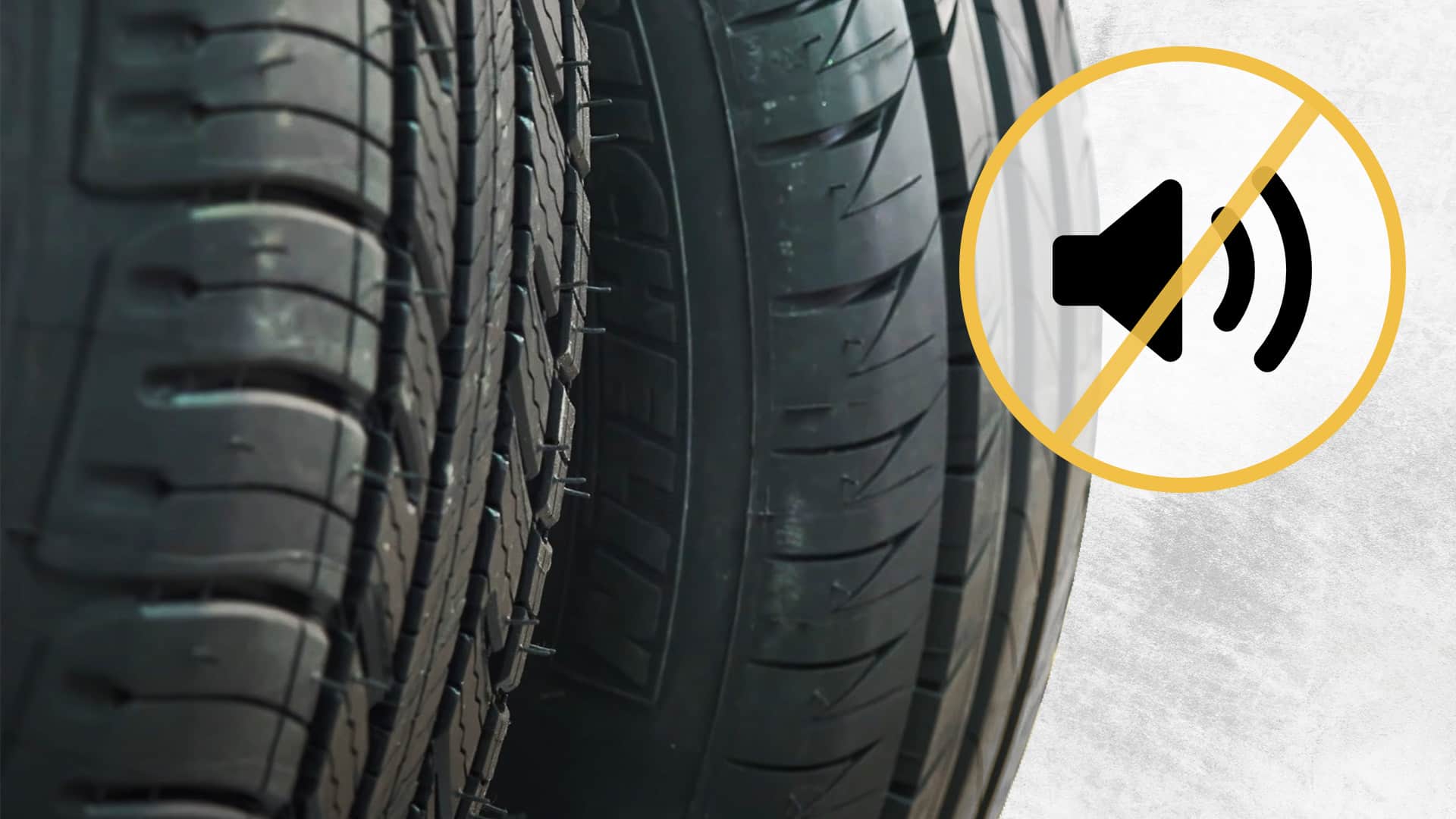
Unfortunately, all tires produce some level of noise while in use – but when it becomes too loud, it’s time to take action!
Luckily, there are several effective ways to dampen loud tire noise at highway speeds. From choosing quieter tire options and soundproofing your car’s interior to properly maintaining your tires, we’ve got all the tips and tricks you need to get rid of that pesky tire noise.
But first, let’s dive into what causes loud tire noises.
Normal Reasons For Loud Tire Noise at Highway Speeds
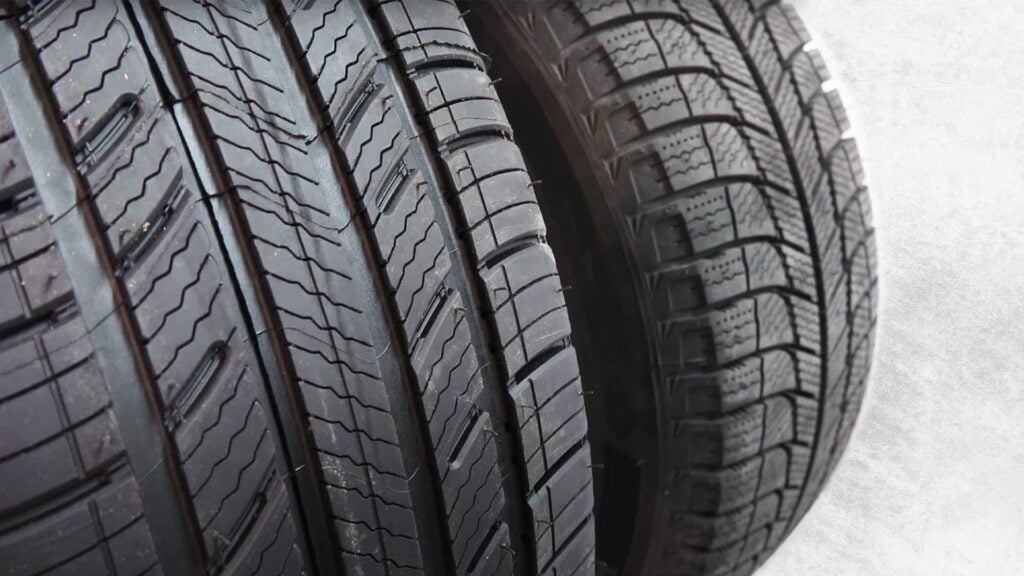
Tire Type
All tires produce some noise. However, certain tread patterns like those on winter and off-road tires can make a roaring racket.
Similarly, run-flat tires tend to be noisier because of their stiffer sidewalls.
On the other hand, touring tires and ones with low rolling resistance tend to be the quietest of the bunch.
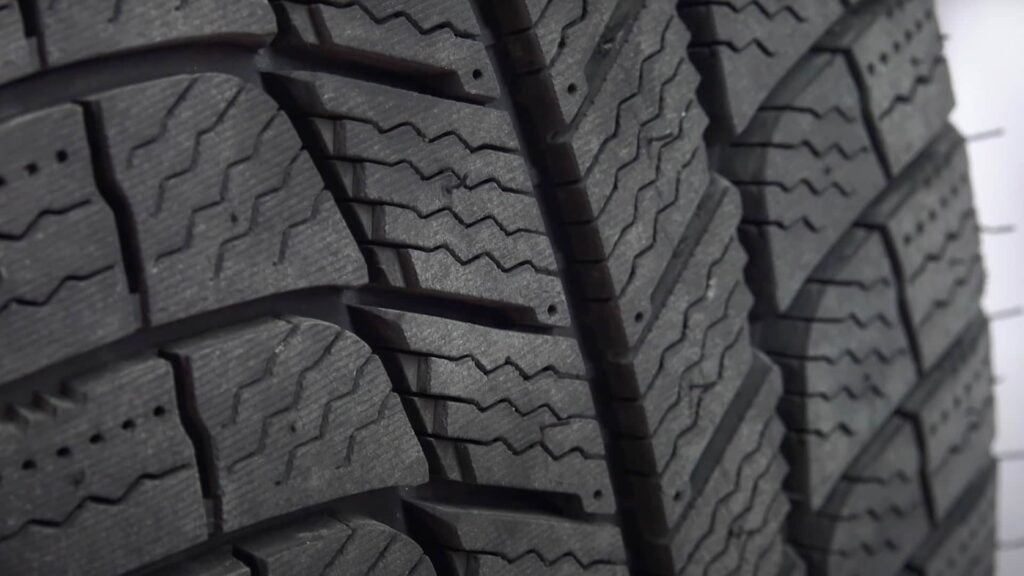
Tread Pattern
Tire noise can result from more aggressive and symmetrical tread patterns. You see, as the air gets into the grooves, it compresses between the surface and the tire. And when it exits, you hear a sound that repeats every time a new wave of air enters the channel.
The further apart the tread blocks (like on off-road tires), the more trapped air there is, ultimately causing your car’s tires to make a racket.
To design quieter tires, manufacturers have to take a different tack with their block patterns. They aim to put together different tread blocks alongside one another since each pattern creates unique tones when they release air.
By balancing these tones correctly through pitch sequencing, they create neutral white noise in your vehicle – which is essential for keeping tire noise at bay!
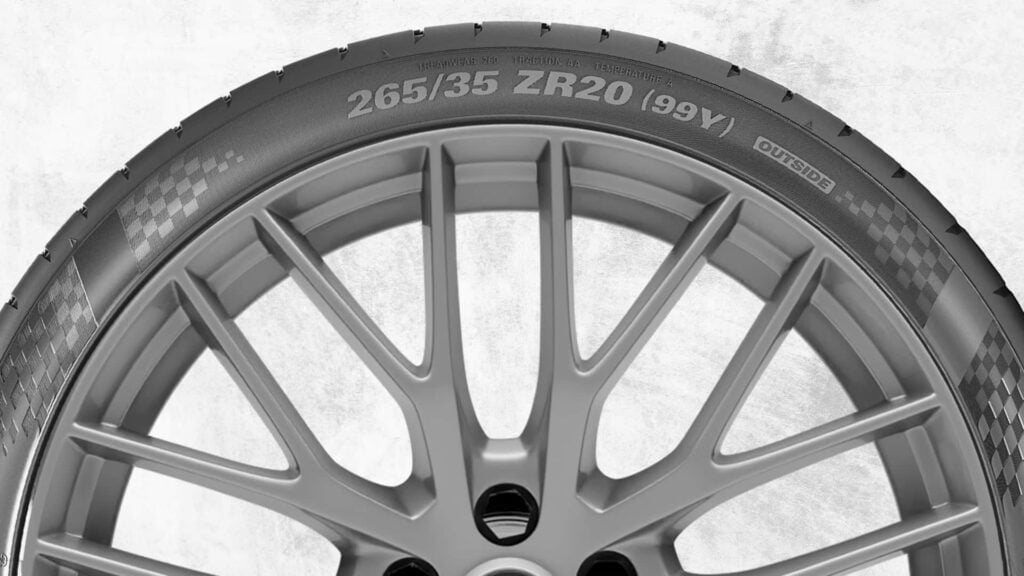
Tire Size
Tires that are wider than what is recommended or have a smaller aspect ratio (height of the tire relative to its width) tend to make more noise.
If we compare a 225/ with a 255/ tire, the former has more surface area in contact with the ground, which means there’s more rubber to generate noise.
And when it comes to the aspect ratio of the tire, smaller tires, like the 35-series, have less of a sidewall to dampen sound. Therefore, they will generally make more clatter than their 60- or 65-series counterparts.
Abnormal Reasons Why Car Tires Sound Loud
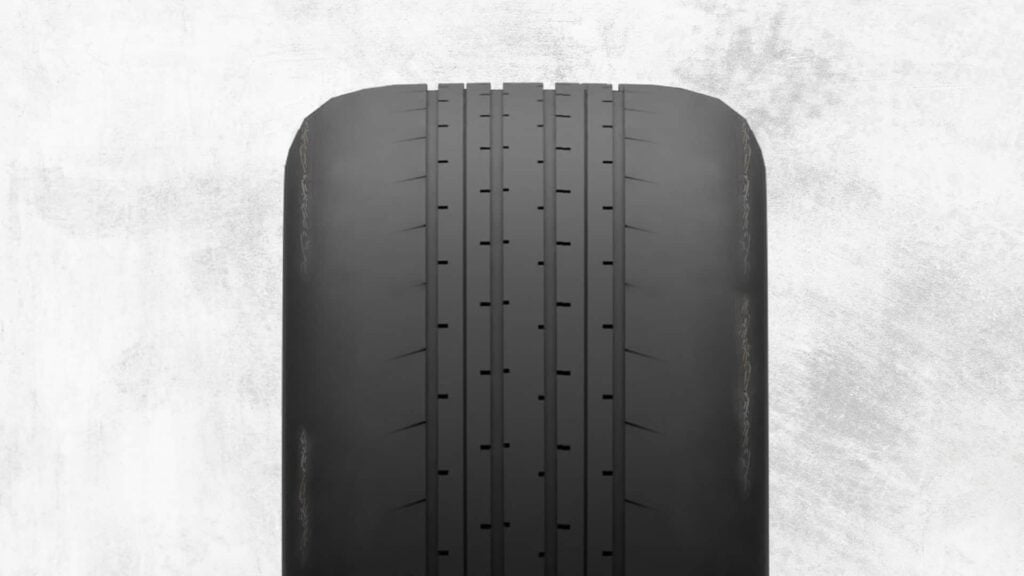
Inner and outer edges wear
Underinflated tires will often wear heavily on the inner and outer edges, which puts more pressure on those areas. Consequently, as air circulates through the tire and tread, it creates different sounds that make your car’s tires much louder – usually a squeal.
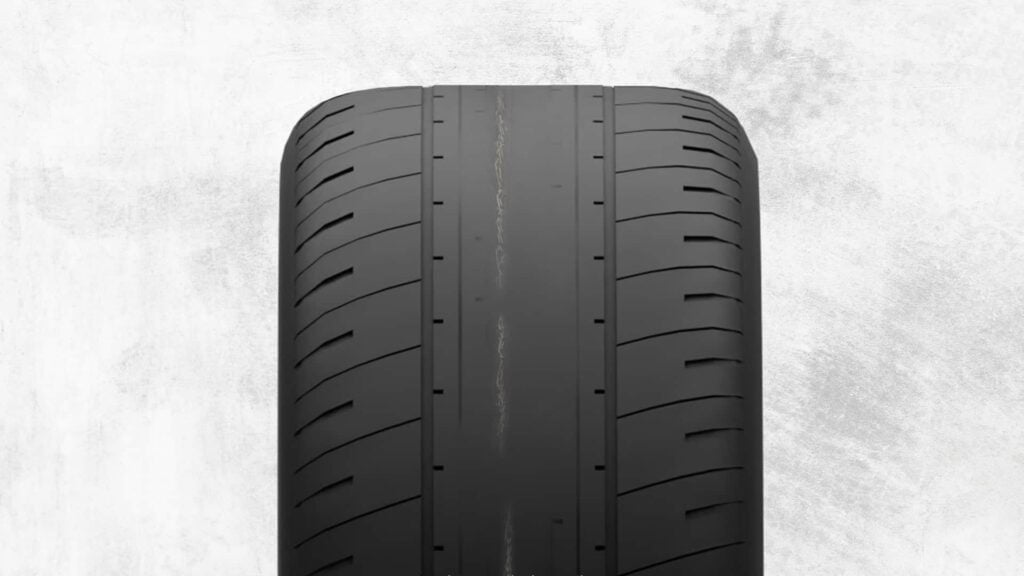
Center Wear
Overinflation is another issue that might cause the central part of the tire to wear faster than its edges. The central blocks are hit hard by this kind of pressure pattern, which means you’re likely to hear more noise from your tires.
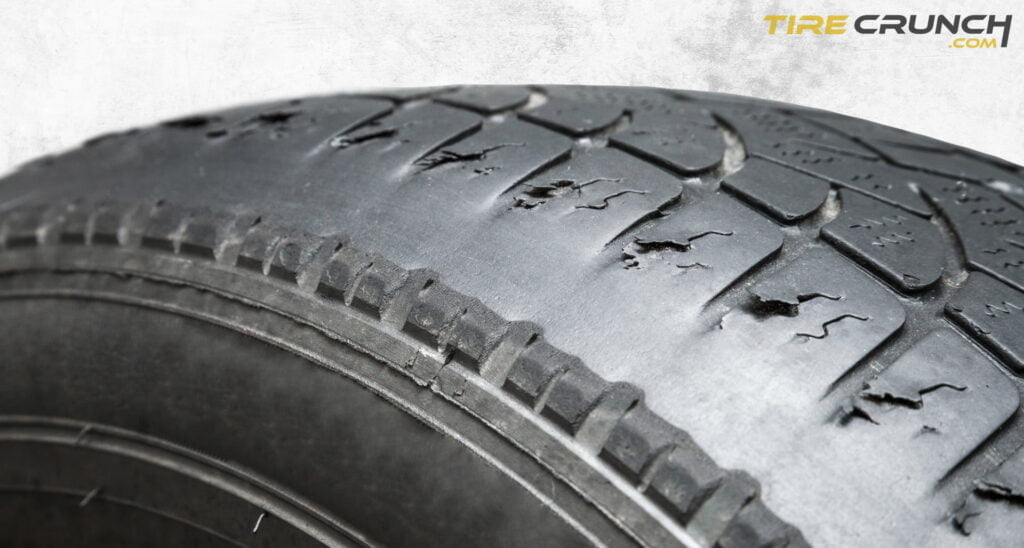
Camber Wear
Other common tire problems include camber wear where one shoulder wears down unevenly compared to other parts of the tire; this could mean there’s an issue with wheel misalignment or damage in the ball joint or suspension.
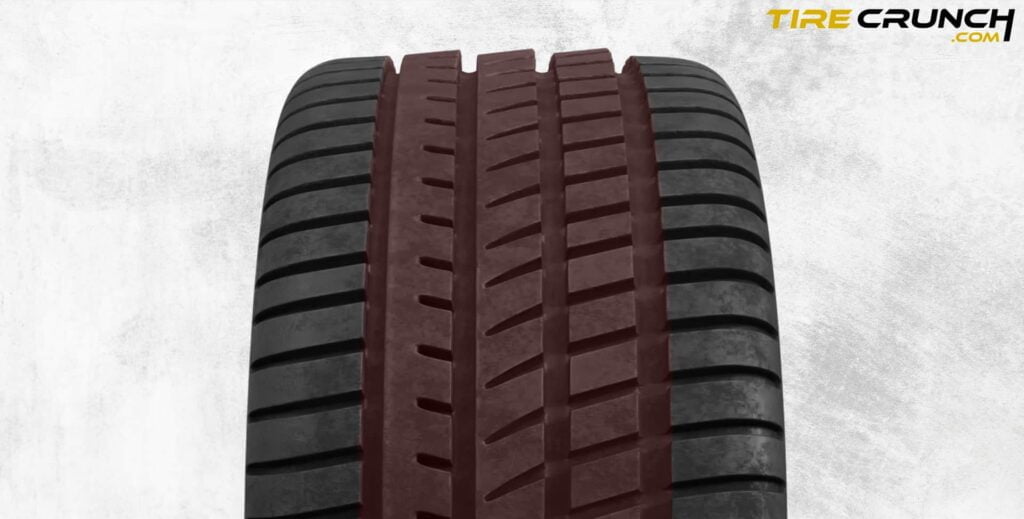
Feathering
Feathering happens when one rib edge becomes blade-like while the other rounds; wrong toe-in setting (another wheel alignment parameter) worn-out bushings or front suspension may cause it.
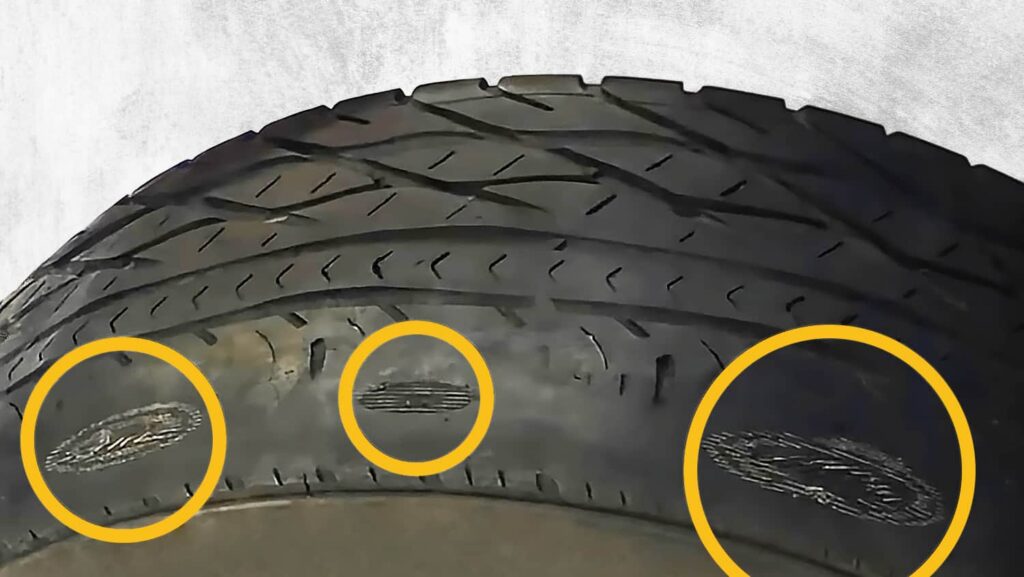
Cupping
Cupping is where there are gouges across multiple patches along a tire’s tread surface caused by worn-out or bent suspension – giving drivers an unpleasant rumbling rumble effect!
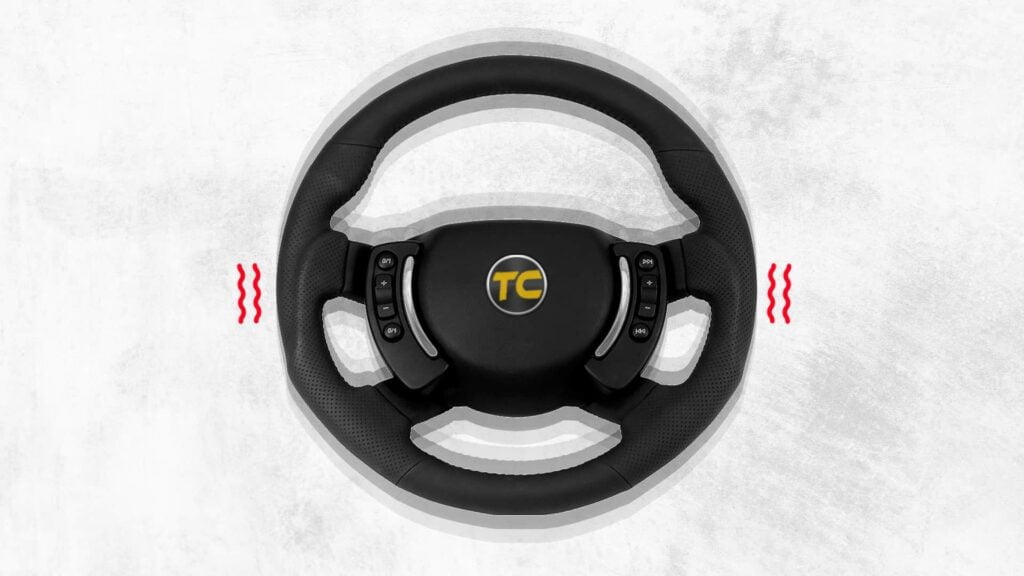
Unbalanced Tires
When your vehicle tires are imbalanced, it can be quite an earful! You’ll hear lots of noise and feel constant vibrations when driving at speeds over 45 mph. Unfortunately, umbalanced tires not only sound unpleasant but wear unevenly too – which may affect the suspension parts because of all the bouncing around they do.
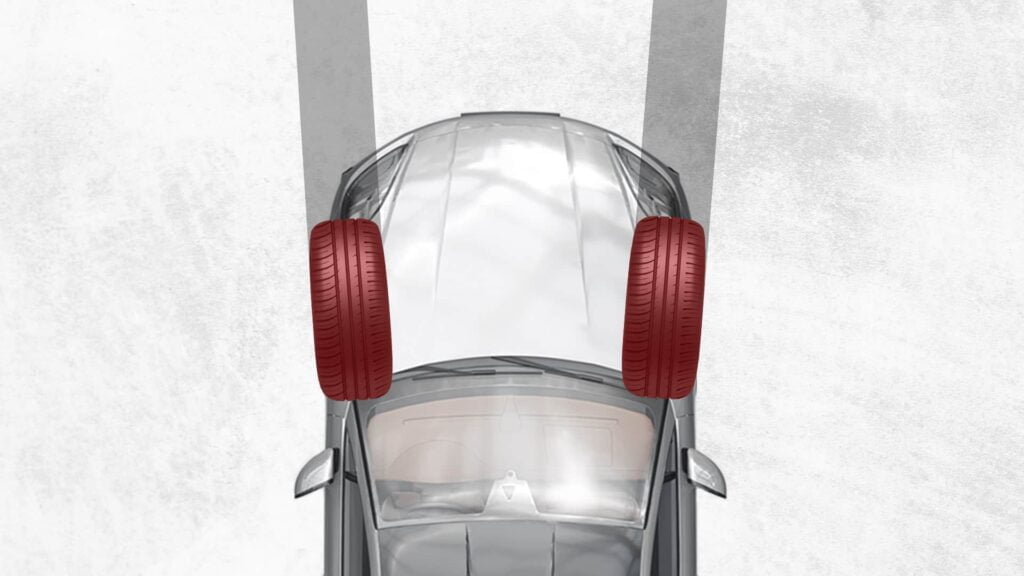
Wheel Alignment
A car with misaligned wheels is like a choir that’s singing off-key – it just doesn’t sound right! This means that the tires will wear down unevenly and produce louder-than-normal sounds since they’re not parallel to each other or perpendicular to the road.
The wear patterns and increased air chamber sounds combine to create quite an unpleasant cacophony.
Ways To Reduce Tire Noise
Choose Quieter Tires
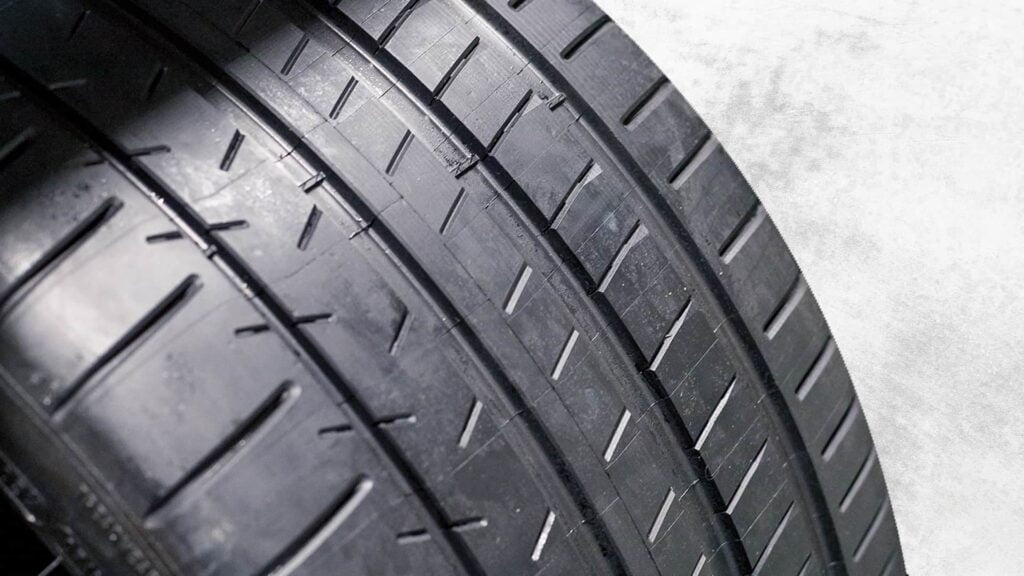
Not all tires are created equal – some are naturally quite loud!
So, one effective way to reduce tire noise is by choosing quieter tires. For example, touring tires generally produce less noise than high-performance or all-terrain tires.
Choose Narrower Tires
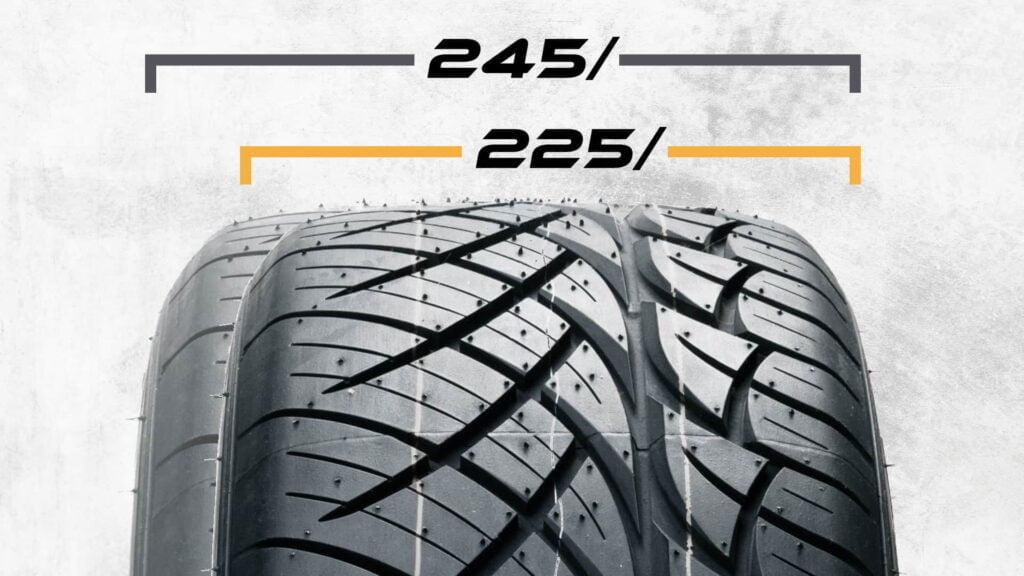
One effective way to reduce road noise from tires is to purchase narrower tires. Narrower tires have less rubber in contact with the road, generating less noise as a result.
Choose Tires With Noice Cancelling Technology

Leading brands like Pirelli, Continental, and Michelin have developed innovative solutions to make their tires quieter than ever before.
These tires feature a sound-absorbing sponge fitted on the inside of the tire tires that reduces noise by up to 50%.
This sponge technology doesn’t change the tires’ performance characteristics, mileage, or load capabilities either.
Soundproof The Interior
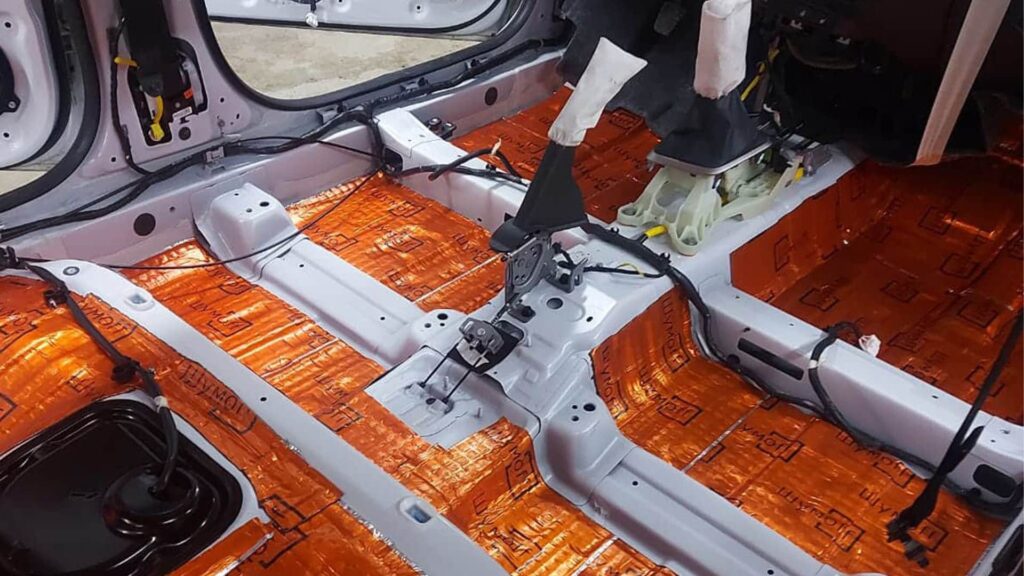
Soundproofed Car Floor
Although it’s impossible to avoid all tire noise, soundproofing your car floor can significantly reduce and dampen any excessive sounds that may make their way into your cabin.
Fortunately, many car accessory stores offer an array of products that can be used to soundproof your vehicle floor. These materials work brilliantly to block sound vibrations and reduce unwanted tire noise in your cabin.
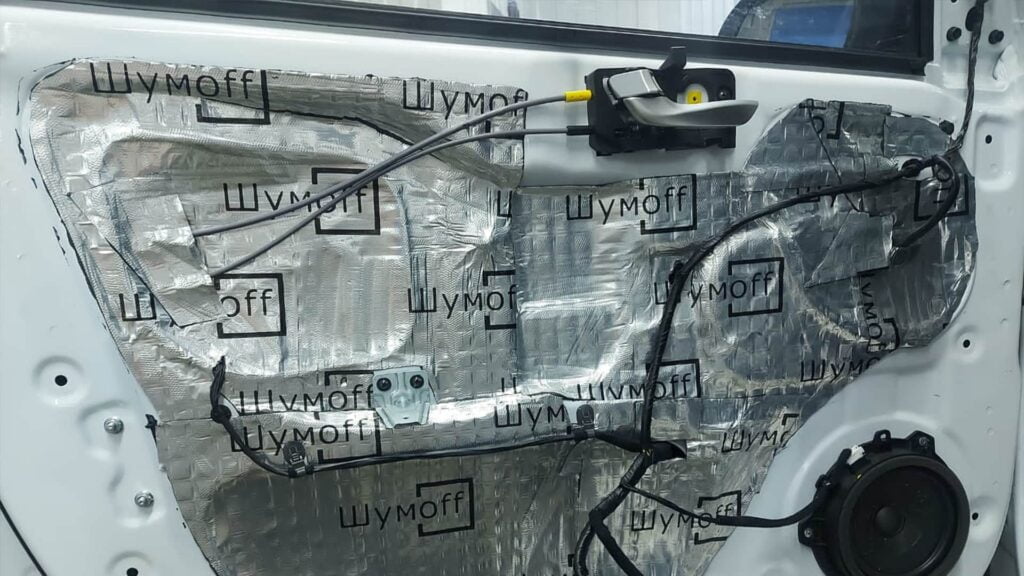
Soundproofed Doors
Thin metal doors are prone to let sounds slip inside the cabin because they don’t provide much insulation. Plus, since their structure is hollow, they amplify noises even more – like a megaphone amplifying sound.
To prevent this situation from becoming unbearable, try adding some soundproofing material to your car’s doors.
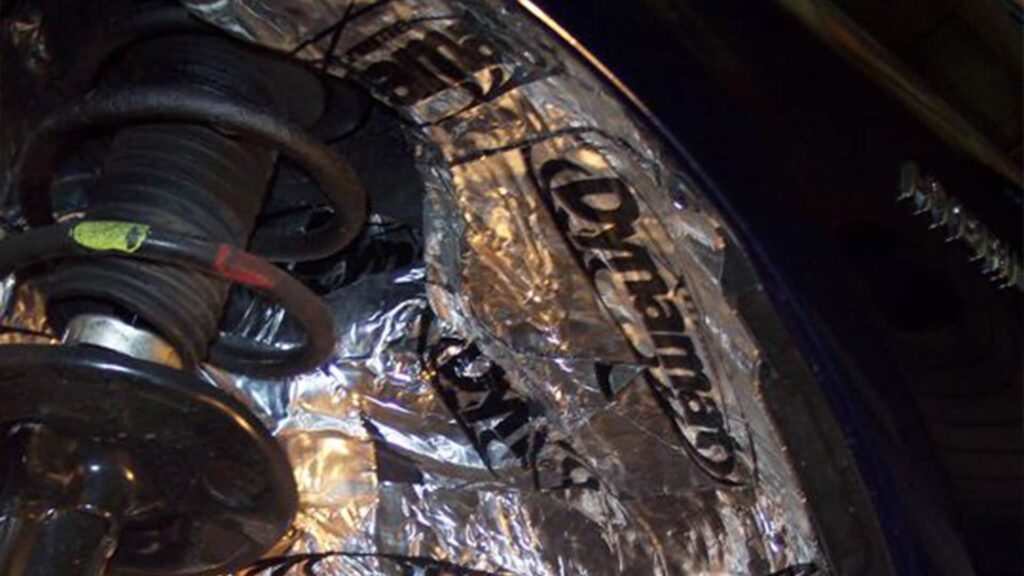
Soundproofed wheel wells
The wheel arch, the area surrounding the wheels, is what we call the wheel well. It has a protector, usually made of plastic or foam, which keeps rough debris or mud from caking up on the car’s body. However, this protector fails to block out unwanted road noise from entering your car’s cabin.
Therefore, adding soundproofing material below or on top of these thin plastic protectors could be an effective solution to prevent tire rumble from entering your cabin.
Proper Tire Maintenance
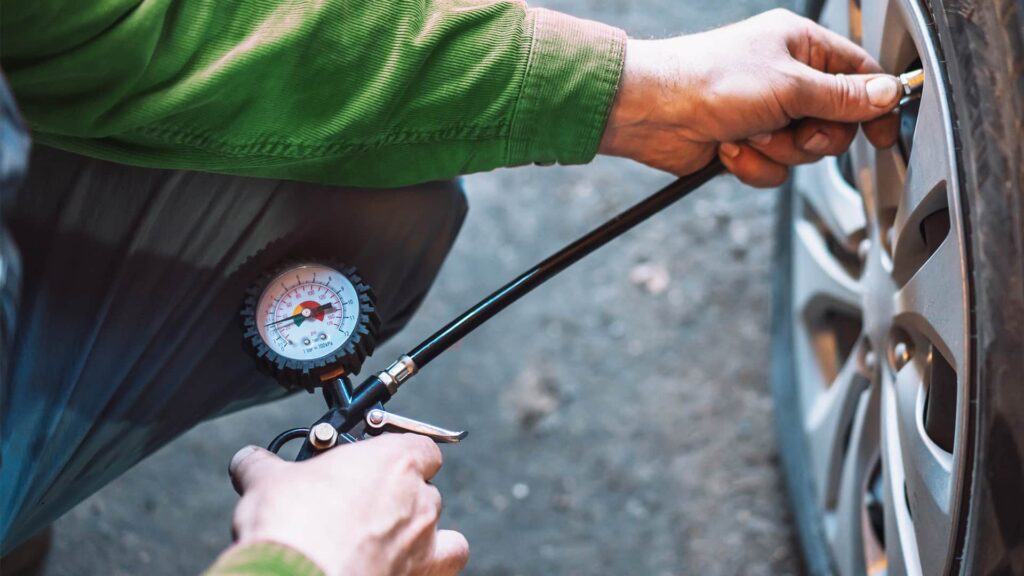
Proper tire maintenance is crucial in reducing tire noise. Here are some tips to keep your tires in good shape and minimize road noise:
Final words
Reducing road noise from tires is not only important for driving comfort but also essential for your safety on the road. By regularly maintaining and servicing your tires, choosing quieter tire options and soundproofing your car’s interior, you can significantly reduce tire noise.
Proper wheel alignment and balancing can also improve overall tire performance and decrease noise levels. Additionally, taking small steps such as using foam inserts or sprays inside tires or choosing high-quality door seals can make a significant difference in reducing road noise.
